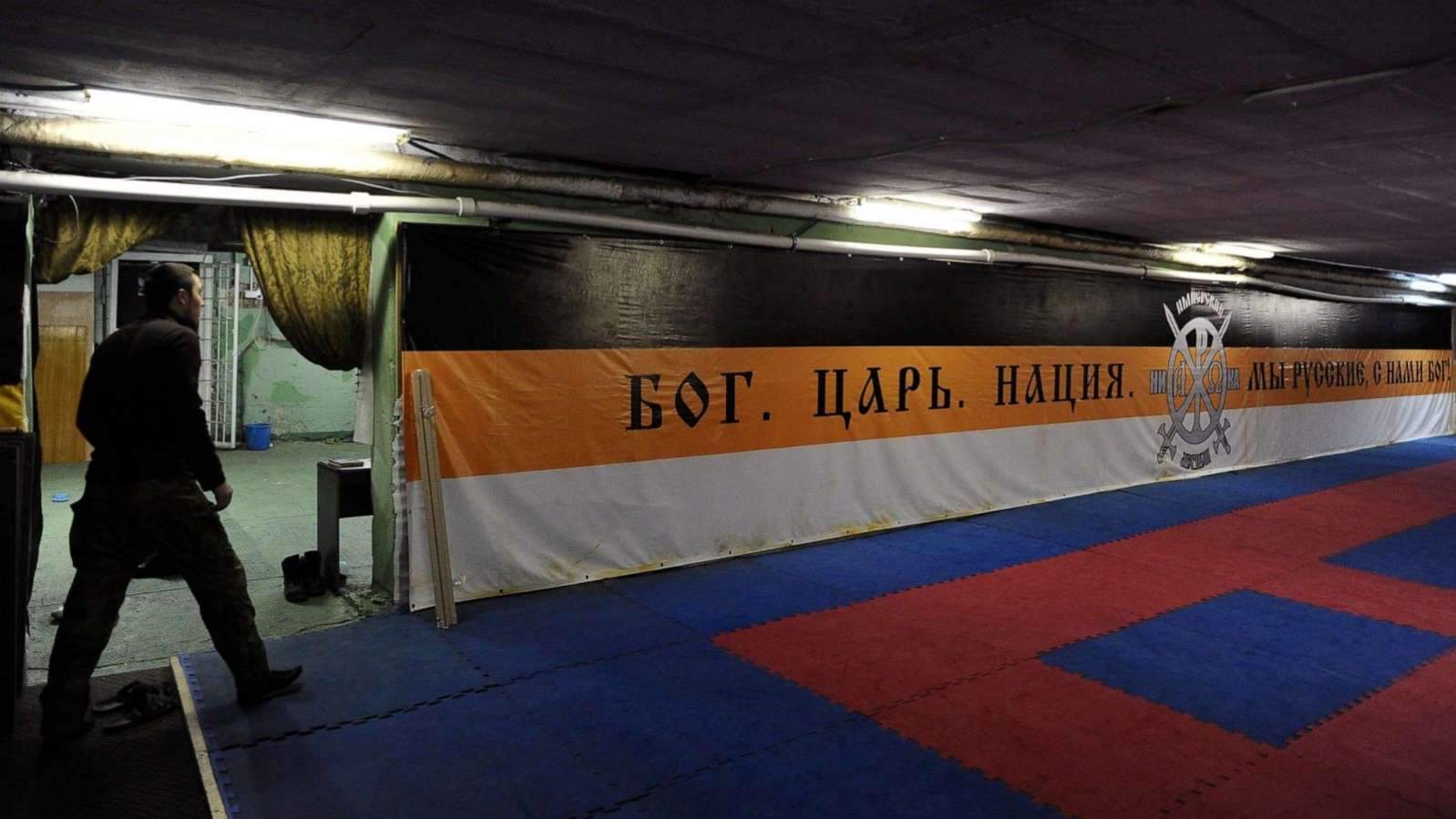State Dept. labels white supremacist group terrorists for 1st time ever

The Trump administration has taken the historic step of designating a white supremacist group as a global terrorist organization, sanctioning a Russian organization and three of its leaders Monday.
The new designation is an escalation in tactics, giving the U.S. government increased enforcement tools against what experts have warned is a growing threat -- white supremacist groups recruiting violent individuals across international borders to train and conduct attacks -- but one that President Donald Trump has at times downplayed.
"Today's designations send an unmistakable message that the United States will not hesitate to use our sanctions authorities aggressively and that we are prepared to target any foreign terrorist group, regardless of ideology, that threatens our citizens, our interests abroad or our allies," said the State Department's top counter terrorism official, Ambassador Nathan Sales.
The white nationalist group, known as the Russian Imperial Movement, or RIM, has provided paramilitary training to neo-Nazis and white supremacists, and recruited from overseas, especially Europeans, but reportedly including some Americans as well, according to Sales.
Among other plots, two Swedish men were recruited by RIM, brought to St. Petersburg for 11 days of paramilitary training, including weapons use, hand-to-hand combat, and "woodland and urban assault," per Sales. Months later, the two men returned to Sweden and conducted two bombings outside a cafe and a migrant center in Gothenburg, with a third attempted bombing failing to detonate.
Sales wouldn't preview any other designations of white supremacists, but said the administration "will not hesitate to aggressively use" the same authority to sanction other similar groups that incite, facilitate, direct, or plan attacks, including, in RIM's case, by providing training.
The designations also target three of RIM's leaders -- Stanislav Anatolyevich Vorobyev, Denis Valliullovich Gariev and Nikolay Nikolayevich Trushchalov -- and will allow the Treasury Department to freeze any of their or the organization's assets moving through the U.S. financial system. The Homeland Security Department will also be granted broader authority to deny entry to the U.S. to individuals with ties to RIM.
"We've seen what RIM-trained terrorists can do in Europe, and we want to make sure that RIM is not able -- or any terrorist group is not able -- to accomplish something similar here in the United States. ... (Designating RIM) enables us to better protect our borders, to keep these terrorists out of our country and to deny them resources they may use to plan additional training that could harm our interests," Sales said, while declining to say what kind of assets the group has that the U.S. could seize.
The designation doesn't allow the Justice Department to bring charges against Americans who provide material support to RIM, but Sales said that U.S. law enforcement has other authorities to go after any of its supporters, referring questions on possible prosecutions to the Department of Justice and the FBI.
Sales wouldn't say what contact the Trump administration had with the Russian government ahead of the announcement or whether Vladimir Putin's government has been helpful in combating white supremacist terrorism. Instead, he called on Moscow and all governments to use their own authorities to deny violent actors' ability to travel and their access to the international financial system.
Senior U.S. officials have been warning for years now that the threat of racially or ethnically motivated terrorism is growing. That includes white supremacist violence in the U.S., where an anti-immigrant gunman killed 20 people at an El Paso, Texas, Walmart and an anti-Semitic gunman killed 11 people at the Tree of Life synagogue in Pittsburgh.
In January, U.S. law enforcement also arrested seven alleged members of "The Base," a militant neo-Nazi group that advocates for a "violent insurgency" to incite a race war, overthrow the U.S. government and create a white nationalist state.
"We are starting to see racially motivated violent extremists connecting with like-minded individuals overseas online," FBI Director Christopher Wray told the House Homeland Security Committee in November. "In some instances, we have seen some folks travel overseas to train," particularly in eastern Europe.
Sales warned Monday that even when not in direct communication, these groups and individuals inspire each other, including how the El Paso shooter said he was motivated by an attack months earlier in Christchurch, New Zealand, where a white supremacist killed 49 people at a mosque.
After the El Paso shooting, Trump called for all Americans to "condemn racism, bigotry and white supremacy." But the president has also downplayed the threat of white supremacist violence, saying after the Christchurch shooting that the issue is "a small group of people that have very, very serious problems."
Trump has also drawn criticism for proposing a ban on all Muslims to the U.S., not immediately rejecting the support of David Duke, the former KKK Grand Wizard, during his campaign, and saying there were "very fine people on both sides" after the August 2017 clash between white nationalists and anti-racist protesters in Charlottesville, Virginia.
Photo: © Olga Maltseva/AFP via Getty Images, FILE In this February 28, 2015, file photo, a member of the Russian Imperial Movement, a nationalist group in Russia, walks close to a banner reading "God.Tsar.Nation.We are Russians, God with us" at a training base in Saint-Petersburg.




